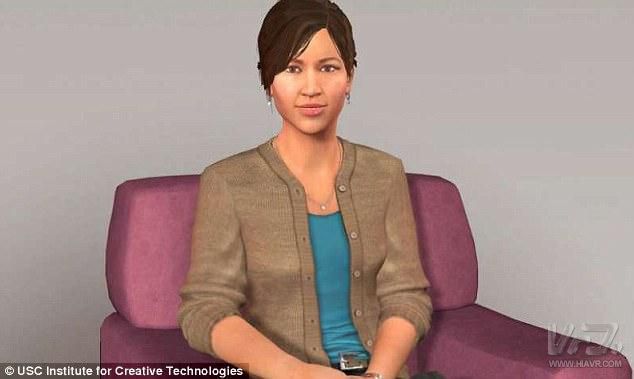According to a report in the online version of the British "Daily Post" (Mail Online), the U.S. Army accepted the suggestion of a researcher from the University of South Carolina to use a virtual psychological counselor named Ellie to help treat PTSD. Post-stress disorder. Earlier, some research reports have shown that due to the consideration of their career prospects, many military personnel are unwilling to disclose mental health problems to people, which affects the accuracy of psychological counselors' assessment. With the continuous development of new technologies, robotics may solve this problem. University of Southern California Virtual Robot Alley Designed for PTSD Soldiers PTSD is a mental illness. When an individual experiences a traumatic event, he may be mentally attacked again later in the memory. The cause of this disease is complex and can be a threatening event or a major natural disaster. As the U.S. military continues to wage wars on overseas battlefields in recent decades, the pressure on soldiers to face death and death is enormous, and the risk of illness is thus greatly increased. According to a report from the U.S. Department of Defense on war veterans, as many as one in five U.S. Army veterans suffer from PTSD, and overactive fear memories afflict their thoughts, emotions, and dreams. The suicide rate of the U.S. Army has also been rising since 2004. A recent assessment by the military's PHDA found that about one-seventh of the soldiers in the army considered suicide. Suicide is just one of the extreme manifestations of PTSD. It is also very likely to lead to murder, or even untargeted shooting. In January of this year, a U.S. Iraqi war veteran soldier fired at the Fort Lauderdale airport in Miami, causing five deaths and eight injuries. He was the victim of PTSD. Based on the accident news of the past few years, it can be found that such cases are not alone. In order to tap the early symptoms of PTSD, VR chat robot Ellie received a grant from the U.S. Department of Defense and set up an information kiosk at the U.S. Veterans Administration Hospital. In the course of treatment, Alley will first ask some simple questions, such as “Where are you from?†“What do you like to do to relax yourself?†This has, to a certain extent, brought the relationship between the robot and the military closer. Afterwards, she will be on the sidelines to ask if they have a nightmare, and if there is any morbidity after illness. “She is very subjective,†said Lucas, a counselor and ambassador of the University of Southern California who is also responsible for the project. “We don’t expect her to treat patients. What she can do is to talk and let patients think and explore everything about mental health.†The symptoms." Lucas et al. performed a test on 29 Guards soldiers who had just returned from the battlefield in Afghanistan. There were three control groups in the test. One group was interviewed by VR robot Ellie one by one, one group was randomly selected by one-third of the respondents to conduct the questionnaire, and the other group was to report the soldiers to the military agency PHDA in the form of four people. . Research shows that the data obtained by the robot group is much higher than the other two groups. Another test for 132 active soldiers is more convincing. Ally received three times more information from them than the anonymous questionnaire. Although the role of the robot seems to be very significant, when the US military announced the study to the community, the poor assessment made them all look surprised: The Americans in the commentary alleged that the move was irresponsible and anti-social, and it was the government and the military that held the culprit of PTSD endangering the general public. Another group of foreign netizens also expressed their negative views. They believe that it is not humane to blindly push patients with mental illnesses to “procedural†psychological counselors and robots. They need more social warmth. The blind war brings only suffering to mankind. Over the past years, the U.S. military’s behavior as a “world police officer†in the Middle East has not only displaced local residents, but has also caused the American soldiers who have self-defeated “justice†to suffer. Although robots have shown some positive aspects in psychotherapy, the US PSTD symptoms are fundamental in the White House and the Pentagon. Technology can only be a symptom and it can never be cured. Pond Uv-C Clarifiers,Pond Uv Sterilizer,Uv Bactericidal Lamp,Uv Sterizilier Lamp Sensen Group Co., Ltd.  , https://www.sunsunglobal.com


November 30, 2022